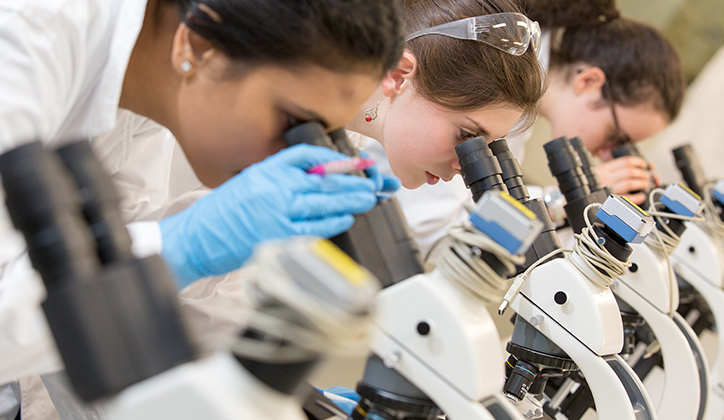Macquarie research projects across health and human sciences, science, and the arts will receive a boost in 2016, advancing research in a variety of subject areas including brain behaviour, agriculture management, and photonics applications and wireless technology developments.
The awards include 19 Discovery Projects (total $7,196,167) lead by Macquarie researchers, across a range of areas from understanding the nature and consequences of interruptions and multi-tasking, to studying ice sheet collapse and sea level rise.
Five Discovery Early Career Researcher Awards (DECRAs) (total $1,802,463) were also granted to Macquarie research projects advancing photonics and wireless technologies, and harnessing astrophotonics and adaptive optics to discover habitable planets.
Two Linkage Infrastructure, Equipment and Facilities grants (total $1,195,000) were also awarded for a virtual experimental geoscience laboratory, and quantitative mineral mapping of nanoscale processes.
“Macquarie University is very pleased with the ARC’s announcement. To receive funding for these 26 research projects is not only a nod towards the great work already undertaken by Macquarie researchers to date, but will enable them to further contribute to solutions towards some of the world’s most pressing challenges,” says Professor Sakkie Pretorius, Deputy Vice-Chancellor (Research).
Discovery Projects
| Prof Xuan Thinh Duong | Multiparameter Harmonic Analysis: Weighted Estimates for Singular Integrals |
| Prof Marion Maddox | Charles Strong’s Australian Church (1885-1917) and Australian Secularism |
| Prof Johanna Westbrook | The nature and consequences of interruptions and multi-tasking |
| Dr Thomas Carlson | Predicting Behaviour from Brain Representations |
| Prof William Thompson | Violent music: social, psychological, and neurological implications |
| Em/Prof Ross Street | Monoidal categories and beyond: new contexts and new applications |
| A/Prof Michael Steel | Better vibrations: controlling light with sound in semiconductor chips |
| A/Prof Dorrit Jacob | Mechanisms of proxy uptake in biominerals |
| Prof Mark Johnson | Improved syntactic and semantic analysis for natural language processing |
| Prof Naguib Kanawati | Measuring meaning in Egyptian art: A new approach to an intractable problem |
| Dr Dominic Berry | Quantum algorithms for computational physics |
| A/Prof Ian Goodwin | Ice sheet collapse, sea-level rise and Australian coastal response |
| Dr Emily O’Gorman | Re-making Wetlands in the Murray-Darling Basin, 1800 to the Present |
| A/Prof Gabriel Molina Terriza | Dual nanoparticles to distinguish between right and left biomolecules |
| A/Prof Simon Clark | Developing a geophysically relevant conduction model for the upper mantle |
| Dr Shirleene Robinson | Volunteers in Crisis: Analysing Responses to HIV/AIDS in Australia |
| Dr Darrell Kemp | Expanding gene-environment causality in evolutionary genetics |
| Prof Ian Paulsen | Improving the efficacy of pseudomonad biocontrol bacteria |
| Prof Gilles Guillemin | Biomagnification of the biotoxin BMAA in the environment |
Discovery Early Career Researcher Awards
| Dr Simon Gross | Shaping light – new frontiers in big fast data |
| Dr Varun Kumaraswamy Annayya Chetty Sreenivasan | Illuminating drug activity in the brain with nanocrystalline beacons |
| Dr Shulabh Gupta | Real-Time Electromagnetic-wave Engineering for Advanced Wireless Systems |
| Dr Xi Zhu | Electronics of the future: self-powering wireless circuit design |
| Dr Christian Schwab | Harnessing Astrophotonics and Adaptive Optics to Discover Habitable Planets |
Linkage Infrastructure, Equipment and Facilities
| Prof Stephen Foley | Australian Virtual Experimental Laboratory: a multimode geoscience facility |
| Prof Martin Kennedy | NanoMin; Quantitative Mineral Mapping of Nanoscale Processes |

